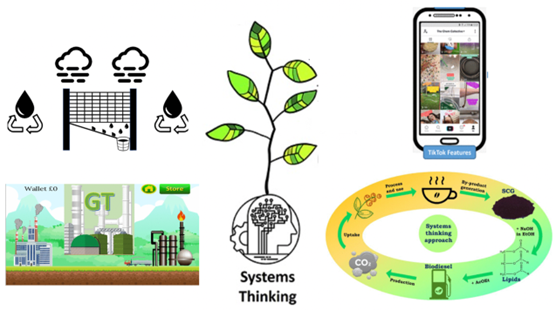York Chemist collaborates with United Nations Environment Programme
Posted on 17 January 2024

Professor Hurst uses a systems thinking-based approach to work with students as partners to facilitate green chemistry education instruction.
The Chemicals and Health Branch of the United Nations Environment Programme worked with Professor Glenn Hurst as part of a resolution of the fourth meeting of the United Nations Environment Assembly (UNEA-4) to produce a specialised manual on green and sustainable chemistry education and learning.
The objective of this manual was to provide a transferrable template to offer practical guidance, illustrative examples, and organised educational resources to advance green and sustainable chemistry education and learning in all segments of society. Professor Hurst served as an expert on the advisory group to produce the manual, which will be offered to institutions throughout the world as a framework to integrate green and sustainable chemistry into all types of education; not only schools, but informal learning environments such as community and spiritual centres.
To address challenges outlined by the United Nations Sustainable Development Goals, green and sustainable chemistry is a critical tool to tackle the current climate change, biodiversity loss and pollution-related crises.
Therefore, a transformation to green and sustainable chemistry requires significant and immediate action to advance education and learning reform. Current chemistry educational instruction often lacks context and the inclusion of important sustainability-related topics. Through taking a holistic systems thinking-based educational approach to teaching green chemistry, this prepares learners to address complex global issues, by showing how chemistry affects human health and the environment.
Professor Hurst has worked closely with students as partners to develop a portfolio of transferrable educational interventions for green chemistry instruction through a systems thinking-based pedagogy.
Much of this work was done in conjunction with undergraduate students within the Department of Chemistry and postgraduate taught students studying as part of the MSc in Green Chemistry and Sustainable Industrial Technology, led by colleagues based in the Green Chemistry Centre of Excellence. It is through designing, implementing, and publishing these resources and interventions that students become global educators of green chemistry.
As well as serving as educational resources for instructors to utilise with their students, elements of these research-led interventions have assisted local communities to operate more sustainably, especially through valorising various feedstocks that would otherwise be discarded, to produce useable products.
The contents and production of the manual is in alignment with work led by Professor Hurst where the Department of Chemistry became one of the first UK-based signatories of the Green Chemistry Commitment in 2022, which is a charter to train the next generation of chemists to take a green approach to practicing chemistry.
Professor Hurst said ‘I am thrilled that the work of our undergraduate and postgraduate students is serving to act as a template for green chemistry instruction globally. It is a privilege to work with such talented students that are committed to transforming chemistry education to train the next generation of scientists, engineers and policymakers to propel us towards a more sustainable society through the adoption of green chemistry.’
The specialised manual can be accessed here.
